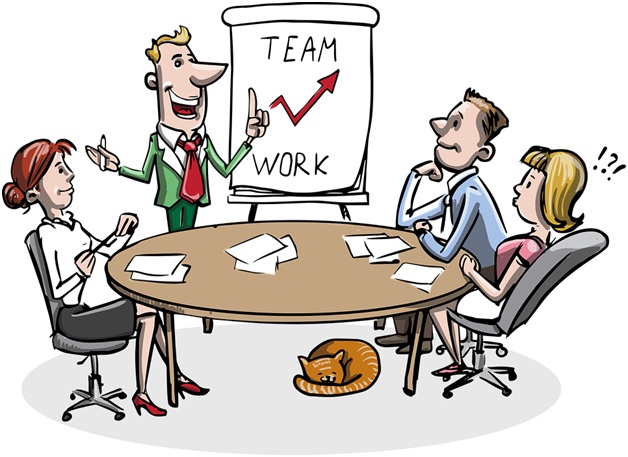Every organization believes in teamwork and emphasizes that employees should collaborate for team goals. But unfortunately, a lot of the times the team members feel suffocated and uncomfortable in the team environment that their workplace offers.
Ever wondered why there is such a stark difference in the ideology and reality of teamwork. Well, the next time you see the dull faces of your colleagues in a team conference, you will surely wonder what’s going on.
Let’s assure you, it’s neither unimaginable, nor impossible to build a healthy culture of team collaboration in your organization. With the right environment, it’s possible to build phenomenal teams. Let’s show you how it’s done!
- Communication is the key
Communication is important at the workplace to develop a team culture that involves freely sharing information, ideas, challenges, feedback and experiences. Good communications andimproving cross-team collaboration goes a long way in establishing cordial relations. Employees are motivated to find solutions together and keep up the workflow. Encouraging employees to be open to listening and brainstorming despite personal differences is the key to building a strong team.
- United by a common purpose
A team has to have a unified goal, a common purpose that drives their actions and efforts. Everyone should be clear about the purpose and about the targets for the project. Having a common purpose guides the efforts of team members towards alignment and cooperation. It also promotes trust and interdependence within the team.
- Clearly state the team rules
Your colleagues or staff may not appreciate strict enforcement of rules. They may consider rules as a redundant practice. You may think so too. But rules are essential for efficiency and productivity of the team. They are necessary for consistency and efficacy of team efforts.
Don’t go overboard with making rules. Rules should be aimed at establishing natural order. Just clearly communicate the most obvious code of conduct expected from the team, and convey it to the team members early on.
- Leadership and guidance
Strong leadership is crucial for the success of the team. Leaders lead by example and mentorship. But they also form the core of the line of command in the team. Responsible leaders are great thinkers and listeners too. Their guidance gives assurance to the team members and motivates individuals to realize their true potential. Basically, without a strong leadership and its positive vibes, a team could soon shatter to pieces.
- Settle the differences
Team collaborations are influenced by group dynamics too. Individuals have their differences in opinions and working style, which may sometimes lead to frustration. The tension can affect individual performances and ultimately the performance of the team as a whole. Members should be encouraged to find means to settle their differences and arrive at a compromise.
- Collaborative workspace
Many organizations fail to realize the importance of the workplace environment in team building. Technology has made it possible to equip every office space withtools for collaborating formally and informally. It should be convenient for team members to exchange ideas through file sharing as well as face-to-face meetings.
- Recognizing milestones
It is important to present the project to your team as a culmination of milestones. This helps the members to prepare for upcoming challenges while maintaining the momentum of progress. Whenever the team achieves a milestone or a breakthrough, the leader should duly recognize and honor the collaborative efforts that made the achievement possible. Appreciation and rewards are essential to keep your team on target while the going gets tough.
- Show gratitude
Gratitude is a beautiful virtue. It brings people together like nothing does. Unfortunately, it appears that people refrain from expressing gratitude at the workplace. Inculcating a practice of expressing gratitude or sharing a note of thanks, is vital for effective team collaborations. When team members are thanked often, they are motivated to work harder with an increased sense of self-worth.
